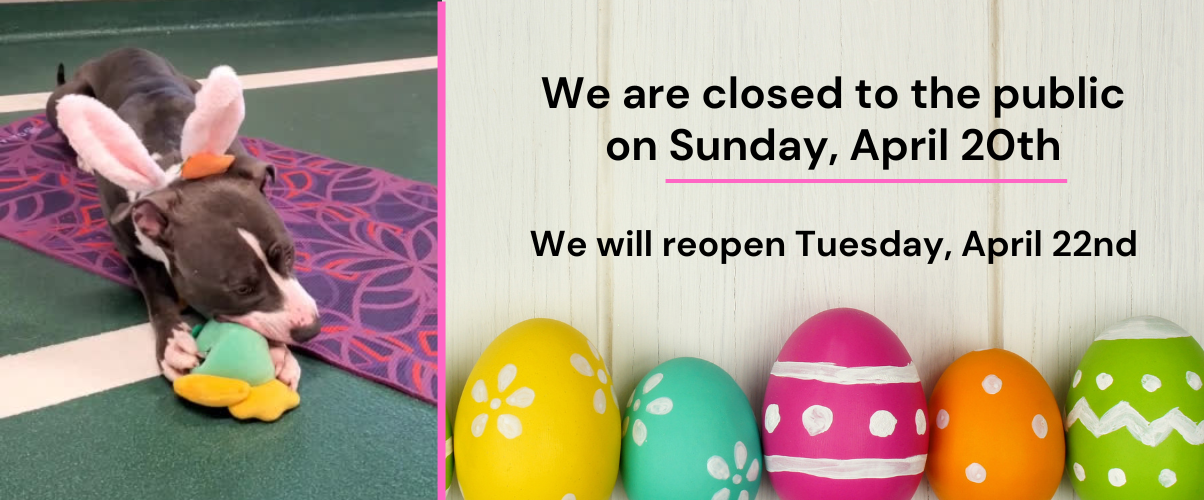
We highly recommend that you take your new dog to the veterinarian of your choosing within one week for an overall health exam. Puppies and kittens may require further vaccinations as they mature. You should receive your dog’s rabies vaccine/certificate within 2-4 weeks of adoption. While at Hinsdale Humane Society, the dog you adopted may have received the following vaccines and/or treatments.
This is a standard vaccine administered to dogs. It provides protection against canine distemper, adenovirus, parvovirus, parainfluenza and leptospirosous. Pups and some dogs need additional boosters of this vaccine administered by your veterinarian over a period of weeks to achieve maximum immunity from diseases. Until these are completed, it is best to limit exposure to other dogs. Many serious dog illnesses are spread by fecal material from other dogs --so properly dispose of waste and avoid areas of elimination used by other dogs. Parvovirus is an especially contagious and often fatal disease which primarily affects puppies, so any dog under one year of age without sufficient vaccine boosters should not be taken to public parks or outdoor areas, even sidewalks, until he has received a full series of DA2PP vaccine. Your veterinarian will work with you to determine a booster schedule and may recommend additional vaccines based on your dog’s age and lifestyle.
Commonly known as kennel cough, bordetella, or canine tracheobronchitis, is an upper respiratory illness spread in facilities with lots of other dogs. All animal shelters are familiar with this disease and most protect all incoming dogs by administering a bordetella vaccine. However, the dogs often come in contact with the bacteria before the vaccine takes full effect, so often dogs leaving the shelter will develop an illness with cold-like symptoms. Other dogs can catch this cold, so limit contact with other dogs until you have observed your dog for symptoms for a week or longer. Should symptoms develop, keep him quiet, entice him to eat and get plenty of rest. Your veterinarian may prescribe antibiotics to prevent him from developing a secondary infection. Canine infectious tracheobronchitis is most often characterized by a frequent dry cough which is aggravated by pressure from pulling on the leash or strenuous activity. Most dogs seem to be minimally affected by the illness and continue to behave normally, eat, and play. Lethargy, reluctance to eat, or white or yellow nasal discharge could be signs that the kennel cough has progressed into a more serious respiratory infection or even pneumonia, so see your veterinarian right away if you notice these symptoms.
Many products exist that protect your dog from fleas and parasites. If you travel with your dog, you will want to protect him from illnesses spread by fleas and ticks in other parts of the country. Your veterinarian has a wide range of high quality flea control products which are safer and more effective than over-the-counter flea products.
The Hinsdale Humane Society routinely tests for heartworm disease. The disease, spread by the bite of an infected mosquito, can be fatal if not treated. We recommend all dogs over 6 months old receive a heartworm test and monthly preventative after adoption. Your veterinarian will be able to provide you with more information about testing and prevention. If you adopted a dog that is known to currently have heartworm, HHS will treat the heartworm, free of charge, after adoption.
A dose of medicine to help eliminate common intestinal parasites was given. Do not be surprised to see worms passed in your dog’s elimination. This is to be expected. Continued treatment and other types of parasite control may be needed and can be provided by your veterinarian depending on your dog’s individual needs.
If your cat or kitten was altered recently, be sure to monitor the surgery site carefully for signs of swelling, redness, or discharge, and contact your veterinarian with any questions or concerns.
Your pet has been microchipped. HHS registers your basic information with 24 Hour Pet Watch. We highly recommend you contact them by calling 866-597-2424 to ensure all necessary information is included and correct.
Certain dog breeds require professional grooming. Grooming is not merely for looks; it allows for freedom of movement and allows the skin to breathe. Neglecting this type of care can constitute neglect and can cause suffering. Nail trims can be provided by HHS for a $15 donation.